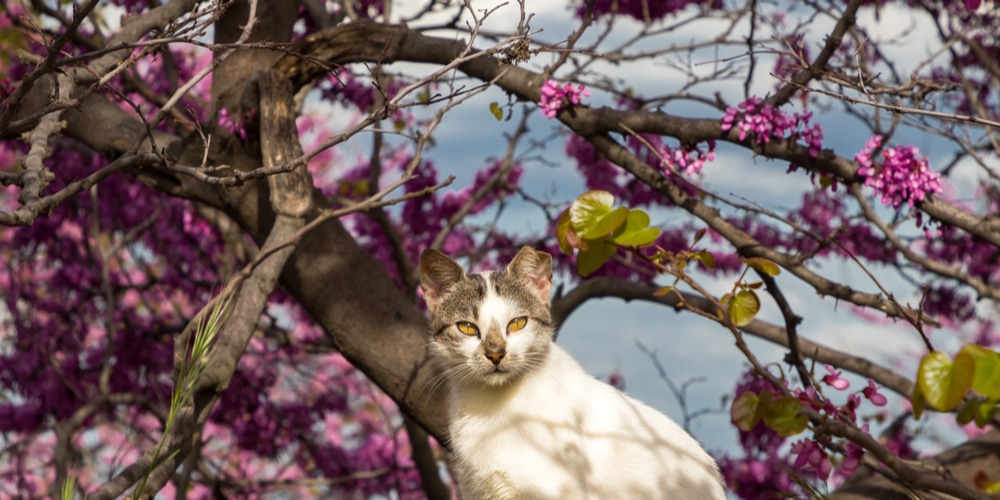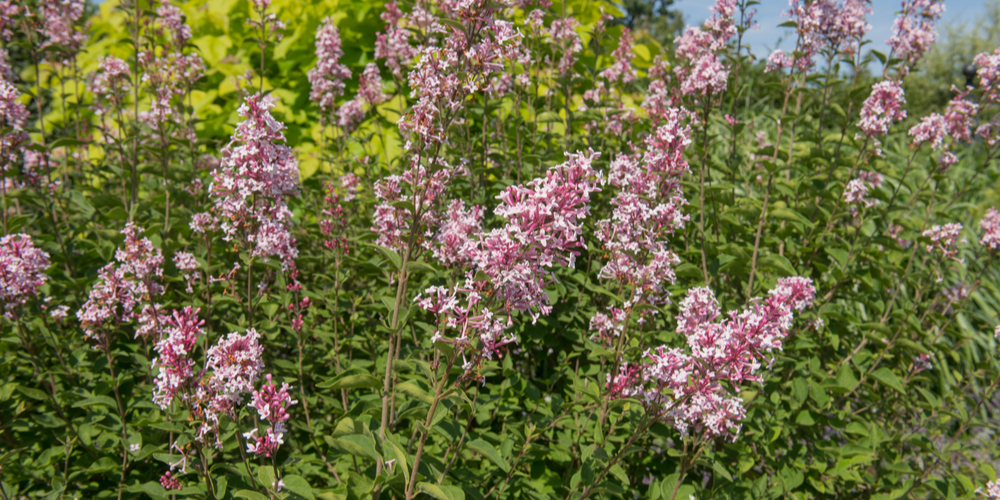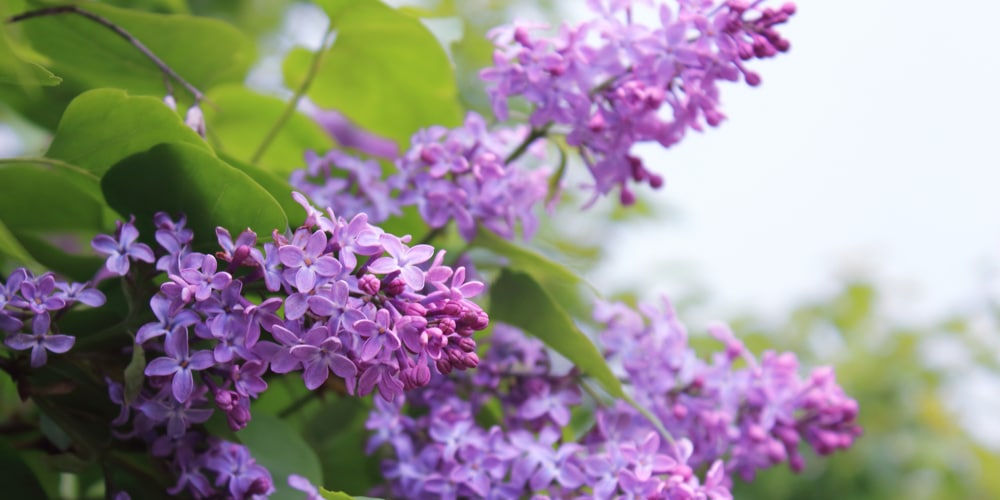Spring is here, and with it comes the return of colorful flowers blooming everywhere. One of the most popular spring flowers is the lilac.
They are beautiful, fragrant, and come in a variety of colors. If you are a cat owner, it’s essential to know which plants and flowers are poisonous to cats.
Lilacs are one flower that may seem harmless but can be quite dangerous to cats. This article will discuss the dangers of lilacs for cats and what you need to do if your cat has ingested this plant.
About Lilacs
Few are as fragrant or as beloved as the lilac of all the flowers that grace the garden. A member of the olive family, lilacs are native to Europe and Asia and have been cultivated for centuries.
Today, there are hundreds of varieties of lilacs, ranging in color from pale pink to deep purple. Lilacs typically bloom in late spring or early summer, and their heady fragrance can fill a garden with the scent of springtime.
In addition to their beauty and fragrance, lilacs are popular because they are relatively easy to care for. They prefer full sun and well-drained soil; once they are established, they require very little maintenance.
Are Lilacs Poisonous To Cats?
Common lilacs (Syringa vulgaris) are popular landscaping plants due to their showy flowers and pleasant fragrance. Unfortunately, these same features can make them attractive to cats, which may be tempted to nibble on the flowers or chew on the leaves.
Although common lilacs are not poisonous to cats, eating any part of the plant can cause gastrointestinal upset, including vomiting and diarrhea.
If your cat shows any signs of ill health after eating common lilacs, be sure to get in touch with your veterinarian immediately. In the meantime, you may consider planting another type of flower in your garden that is less enticing to feline friends.
What Are The Poisonous Varieties Of Lilac?
The most common poisonous variety of lilac is the Persian lilac of the Melia genus. The Persian lilac, sometimes known as the white cedar tree, is a small-flowered shrub with flowers that are a pale pink. These plants produce light lilac blooms that are far smaller than average lilac blossoms and grow only to be 8 feet tall.
Though they may be delicate in appearance, Persian lilacs are quite poisonous to cats. This is due to the presence of Melia toxins A and B in the plant’s seeds.
French lilacs are a popular choice for gardeners looking to add a splash of color to their yard. However, many people don’t realize that these beautiful plants can be dangerous to cats.
French lilacs contain galectin, a substance that is toxic to cats. Ingesting this substance can cause various problems, including pulmonary edema, hydrothorax, and even death.
If you have a cat, it is essential to be aware of the dangers of these varieties. Keep your cat away from these plants, and if they ingest any part of the plant, seek medical help immediately. Taking these precautions can help keep your cat safe and healthy.
Signs Of Poisoning In Cats
Cats are naturally curious creatures and often like to explore their surroundings by chewing on plants.
Symptoms of lilac poisoning in cats can include vomiting, diarrhea, drooling, weakness, and seizures. In some cases, ingestion of the plant can also cause liver and kidney damage.
If you think your cat has eaten any part of the plant, it is important to contact your veterinarian immediately. Early diagnosis and treatment are essential for a good outcome. With prompt medical care, most cats will recover from poisoning without any lasting effects.
Why Are Cats Attracted To Lilacs
Cats are attracted to lilacs for a variety of reasons. The most obvious reason is the flowers’ strong fragrance. Lilacs produce a potent scent that can be detected from far away, and cats are known for their keen sense of smell.
In addition, the colorful petals of lilacs are visually appealing to cats, who are attracted to bright colors.
Finally, lilacs are typically quite soft and fluffy, and cats love anything that they can sink their claws into.
Are lilacs poisonous to cats: Conclusion
In conclusion, while the common lilac may not be the most poisonous plant to cats, it can still cause stomach upset and vomiting. If you have a cat that likes to nibble on plants, it’s best to keep them away from lilacs.
Also, be wary of the poisonous lilac varieties, such as the French and Persian lilac, which can be fatal to cats. If you think your cat has ingested a poisonous plant, call your veterinarian immediately. They will be able to give you the best course of action for your feline friend.
Related article: Keep Cats Off Fence


